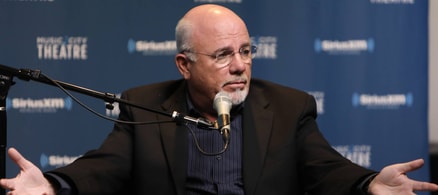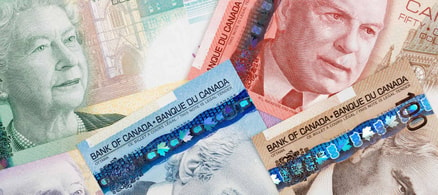Be prepared
Freelancing should start with a discussion with your family. Your loved ones will be directly affected, so everyone needs to be on board with not having the stable monthly cheques of a full-time job.
"We can become very comfortable, almost complacent, when we have a regular paycheque," says Stuart Gray, director of RBC’s Financial Planning Centre of Expertise. "New self-employed individuals are often surprised when they file their first tax return and have not planned for it."
If you’re considering contract work or freelancing, you should also have a meeting with your financial advisor. You want to make sure all of your long-term goals are being met. You also want to ensure that you take advantage of work benefits while you can.
More from Money.ca
- Picked up a side hustle? Here’s how to get your finances in order
- So you’ve joined the gig economy; what are you doing about life insurance
- How a budget can help bring your money under control
Your prep may involve setting up insurance, investing in your Registered Retirement Savings Plan, saving for taxes, creating a budget and starting an emergency fund.
"Ensure that you have funds set aside that you can easily access to fund income shortfalls as you get your business up and running," says Gray. "There is no rule of thumb, but this should likely be a minimum of three to six months’ worth of expenses."
Maximize Your Tax Refund with TurboTax Canada!
Simplify tax season with this user-friendly software. Get step-by-step guidance, maximize deductions, and file with confidence. Trusted by millions, TurboTax Canada ensures accuracy and peace of mind. Start your taxes today and get the refund you deserve
Get the tax refund you deserveConsider your options
With everyone on board, and savings in the bank, you still have to decide how deeply into it you want to go.
For some, it might be using contracts for extra cash flow and keeping their full-time job for benefits. Others may want to take a deep dive into it. As Barrie notes, it is certainly possible to make a living by freelancing, though there is a learning curve.
"This online marketplace helps you connect with clients and freelancers from all over the globe and challenge yourself professionally as well," says Barrie. "The market is ready to compensate freelancers across a broad spectrum. For example, there are freelancers earning $10 per hour and there are others earning $150 per hour."
That's why it's important to do research into your career path before you get into freelancing or contract work. Your paycheque could be small while you build your clientele. With time, it could be as stable and even more lucrative than your full-time job ever was.
"Based on stories told by many of our freelancer users, they usually started freelancing as a part-time career," says Barrie. "When they have repeated and regular clients who go back to them because the clients are satisfied with their work and trust them, they then decide to become full-time freelancers."
How to get started
While every situation will be different, there are definitely some starting points to consider when deciding to freelance.
First, you should set aside money for taxes. For this, it’s better to err on the side of higher taxes, and start with setting aside 30% of each paycheque for taxes and other government payments like the Canada Pension Plan (CPP).
Next, you’ll want to keep putting money aside for that emergency fund. For this, putting aside around 10% of each paycheque would be a great place to start. This could also go in a Tax-Free Savings Account (TFSA) so you can withdraw the funds at any time while continuing to grow, Gray says. The same doesn’t go for an RRSP.
“While the tax refund is nice, saving significant amounts in your RRSP prior to setting out on your own may not be the best idea,” Gray says. “If you need to draw on these funds to finance your income shortfalls, they will be taxable and you’ll lose the benefit of not leaving these funds in the plan to grow, tax deferred, until your retirement.”
While it’s important to consider your tax situation, you shouldn’t let those worries get in the way of your goals, says Maya Patrie, senior investment counsellor and portfolio manager for BMO Private Wealth.
"I don't think [Canadians] should be scared or [taxes] should impede anything," says Patrie. "It's just again this different knowledge base … and having all those conversations up front so there aren't surprises as you venture down this path."
Finally, you’ll want to budget all your costs associated with your freelancing. That would include everything from computer equipment to taking out clients. Collect all receipts so that you can write the expenses off at tax time.
Grow Your Savings Effortlessly with Moka
Automate your savings with every purchase and watch your money multiply. Moka rounds up your transactions and invests the spare change. Start building wealth effortlessly today. Join thousands of Canadians embracing financial freedom with Moka
Sign up nowWhy do it at all?
There may be many Canadians who avoid freelancing. Whether it's the tax implications or unstable income, it can be hard to take on a new career path.
But while there are risks, the benefits can be just as great, says Barrie. Especially if you’ve prepared for any shortfalls along the way.
Sponsored
Trade Smarter, Today
With CIBC Investor's Edge, kick-start your portfolio with 100 free trades and up to $4,500 cash back.







